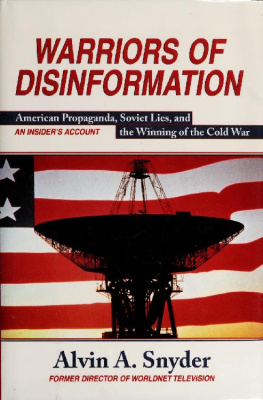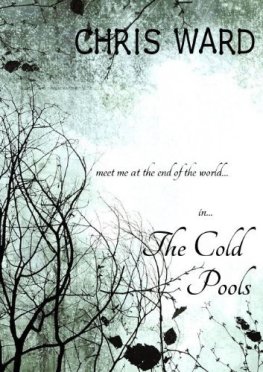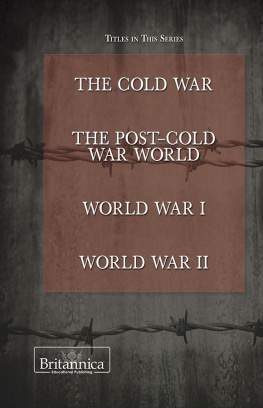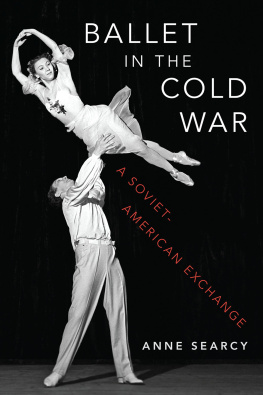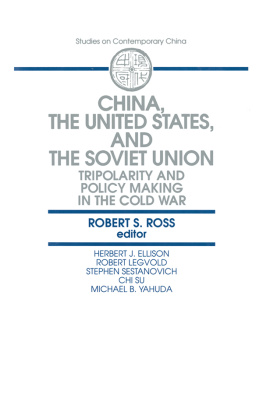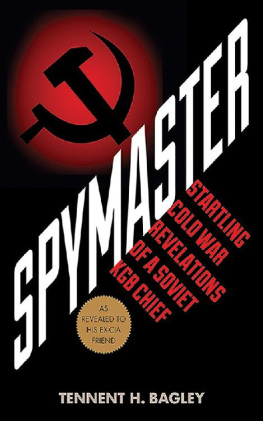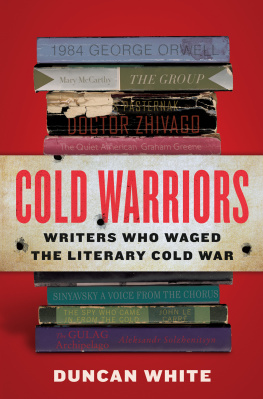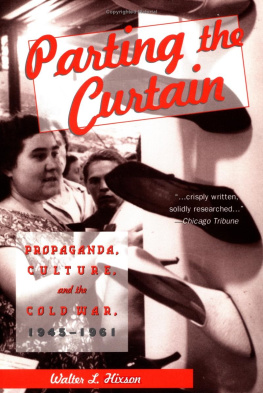Alvin A. Snyder - Warriors of Disinformation: How Lies, Videotape, and the USIA Won the Cold War
Here you can read online Alvin A. Snyder - Warriors of Disinformation: How Lies, Videotape, and the USIA Won the Cold War full text of the book (entire story) in english for free. Download pdf and epub, get meaning, cover and reviews about this ebook. year: 2012, publisher: Arcade, genre: Non-fiction / History. Description of the work, (preface) as well as reviews are available. Best literature library LitArk.com created for fans of good reading and offers a wide selection of genres:
Romance novel
Science fiction
Adventure
Detective
Science
History
Home and family
Prose
Art
Politics
Computer
Non-fiction
Religion
Business
Children
Humor
Choose a favorite category and find really read worthwhile books. Enjoy immersion in the world of imagination, feel the emotions of the characters or learn something new for yourself, make an fascinating discovery.
- Book:Warriors of Disinformation: How Lies, Videotape, and the USIA Won the Cold War
- Author:
- Publisher:Arcade
- Genre:
- Year:2012
- Rating:4 / 5
- Favourites:Add to favourites
- Your mark:
- 80
- 1
- 2
- 3
- 4
- 5
Warriors of Disinformation: How Lies, Videotape, and the USIA Won the Cold War: summary, description and annotation
We offer to read an annotation, description, summary or preface (depends on what the author of the book "Warriors of Disinformation: How Lies, Videotape, and the USIA Won the Cold War" wrote himself). If you haven't found the necessary information about the book — write in the comments, we will try to find it.
Alvin A. Snyder: author's other books
Who wrote Warriors of Disinformation: How Lies, Videotape, and the USIA Won the Cold War? Find out the surname, the name of the author of the book and a list of all author's works by series.
Warriors of Disinformation: How Lies, Videotape, and the USIA Won the Cold War — read online for free the complete book (whole text) full work
Below is the text of the book, divided by pages. System saving the place of the last page read, allows you to conveniently read the book "Warriors of Disinformation: How Lies, Videotape, and the USIA Won the Cold War" online for free, without having to search again every time where you left off. Put a bookmark, and you can go to the page where you finished reading at any time.
Font size:
Interval:
Bookmark:
To
Anne Snyder,
a warrior of boundless inspiration and patience,
to Carole and James Snyder,
and to the memory of my parents.
Jean and Gus Snyder
THERE WERE THOUSANDS OF WARRIORS ON BOTH SIDES OF THE IRON Curtain who fought the battle for the skies, and for what they considered to be a just cause. By recounting their own personal experiences, many of these individuals helped me to reconstruct some of the more significant propaganda battles of the 1980s, the decade in which the war of disinformation drew to a close. A list of those kind enough to be interviewed is included in the Appendix. I am deeply grateful tothem, and to the Annenberg Washington Program in Communications Policy Studies of Northwestern University, Newton N. Minow,director, for providing me with a fellowship to complete the book.
My wife, Anne, was unwavering in her support, withoutwhich Warriors would have never happened.
Timothy Bent, senior editor at Arcade Publishing, madeexcellent suggestions to this television writer who is used to letting pictures tell the story. Warriors is ever better as a result.
My thanks to Maria Downs, my agent, who believed in the book, and provided valuable guidance.
Finally, to Yuri Solton, the Radio Moscow commentator,who thankfully gave us all a wrap when he announced on December30, 1991, The Soviet Union, or rather the totalitarian Communist system that once kept 300 million people in harness and toyed with the maniacal idea of a world revolution, has ceased to exist.
SHORTLY AFTER THE END OF WORLD WAR II, WILLIAM BENTON, an Assistant secretary of state, concluded that Hollywood movies were tarnishing Americas image abroad, so he journeyed west to the film capital to meet with studio moguls and straighten things out. Many in Congress shared his view. Some even suggested that the government should censor films such as Tobacco Road and The Lost Weekend, which they thought gave America a bad rap overseas. They even claimed the Bing Crosby-Barry Fitzgerald movie Going My Way, in which a priest named Father OMalley uses unconventional methods to tame unruly street kids, was considered insulting by Europes Protestant countries because it played up the Catholic religion too much. One Congressman argued that the American film classic Life With Father, the William Powell-Irene Dunne comedy, was harmful to Americas relations with Italy because audiences there considered the movie too juvenile. The State Department was also unhappy with Hollywood film purchases by the Soviet Union.The State Department was pushing the Charlie Chaplin film The Dictator, but the Kremlin instead bought The Grapes of Wrath, based on John Steinbecks realistic but unflattering novel about America during the Depression.
Benton opposed government censorship, but nonetheless felt Hollywood would not comply unless a little vinegar was thrown in. He held four days of nonstop meetings with studio executives. I met constantly with the key groups of the motion picture industrymorning, afternoon, and night, he wrote in his report upon returning to Washington. The motion picture industry is potentially the most valuable ally in the conduct of our foreign relations and conversely it is a first-class headache. Despite his exhaustive and exhausting (he never went to bed before two A.M.) schedule of meetings, Benton admitted having failed to convince Hollywood to eliminate many of the petty annoyances and distorted representations of American life. President Harry Truman also met with a group of Hollywood motion picture leaders, which included legendary filmmaker Cecil B. DeMille, to discuss ways of achieving greater cooperation between the government and the motion picture industry, but nothing much came out of the session. There is no record that Truman lost any sleep as the result of the encounter, as Secretary Benton had under similar conditions. A government study would later reveal that the impact Hollywood movies made abroad was more favorable than unfavorable.
Unable to exert influence in Hollywood, the State Department decided to establish its own film unit, even though government officials openly admitted it would never achieve Hollywoods level of professionalism. But it could offer safe alternatives, such as a cowboy documentary showing that American ranchers worked most of the time just like Siamese sheepherders, instead of gunslinging and killing each other in high-noon showdowns. One State Department documentary film was shot at the New York School for Home Economics and featured average American women rather than Hollywood starlets, preparing for a career in marriage by learning to care for home and family. The women were pictured in a laboratory testing different types of foods, or studying the quality of bedding so that they could make the proper consumer choices as wives and mothers. It was all propaganda, or, as the USIA later preferred to call it, public diplomacy.
Until Ronald Reagan was elected president in 1980, U.S. diplomacy hadnt changed very much. American politicians had always tried to devise ways to influence foreign public opinion overseasas a way of helping foreign policy initiatives, a concept advanced by Benjamin Franklin beginning in 1757, when as envoy to England he tried to rally support for the Colonies, and later by Thomas Jefferson, as Americas representative to France and after he left the presidency. Jefferson had time to ponder things from his retirement at Monticello. The War of 1812 had just ended, and American interests were getting bad press in Europe. I hope, Jefferson wrote, that to preserve this weather gauge of public opinion, and to counter-act the slanders and falsehoods disseminated by the British papers,the government will make it a standing instruction to their ministers at foreign courts to keep Europe truly informed of occurrences here, by publishing in their papers the naked truth always, whether favorable or unfavorable. For they will believe the good, if we tell them the bad also.
Jefferson believed the United States would be able to wield more influence abroad by showcasing its democratic values and institutions. As minister to France after the Revolutionary War, Jefferson established the first American information center with public affairs officers to promote America, laying the groundwork for the future USIA. Information offices quickly spread elsewhere in Europe and beyond. Traditional diplomacy was changed even more radically when the first transatlantic cable was laid in 1866, and again when radio hobbyists discovered in 1924 that shortwave signals could travel huge distances, bounding up and down like a ball for thousands of miles between the ground and an upper layer of atmosphere. Suddenly, everyone wanted to get into the act. The Netherlands was the first European country to use shortwave radio to maintain contact with its Dutch colonies abroad. Britain, France, Portugal, and Belgium followed soon after: they also wanted to strengthen ties withtheir overseas possessions. Telegraph messages were sent first but were soon replaced by voice transmissions, when it was determined that the spoken word enhanced the effectiveness of the message. As veteran Radio Netherlands reporter Jonathan Marks recalls, many nations already had their own airlines and decided that they should have their own international radio voice as well, to tell the world what a great place their country was, providing you were only visiting on a tourist visa.
In 1942, President Roosevelt set up the Office of War Information (OWI), predecessor of the U.S. Information Agency, to combat German and Italian propaganda. The first Voice of Americaradio broadcast was transmitted on February 24, 1942. It consisted of a program, in German, carried across the Atlantic via shortwave and relayed by the British Broadcasting Corporation. The news may be good. The news may be bad, said German Service staff announcer Robert Bauer. But we shall tell you the truth. The VOAs life was imperiled by controversy in 1943, when one of its commentaries referred to Italys king Victor Emmanuel as the moronic little king while the State Department was in the middle of secret negotiations with Fascist Italy. Roosevelt himself admonished the VOA, and its broadcast studios were later moved from New York to Washington, where staff could be watched more closely. Despite the move ,the marriage between journalism and diplomacy became no less strained.
Next pageFont size:
Interval:
Bookmark:
Similar books «Warriors of Disinformation: How Lies, Videotape, and the USIA Won the Cold War»
Look at similar books to Warriors of Disinformation: How Lies, Videotape, and the USIA Won the Cold War. We have selected literature similar in name and meaning in the hope of providing readers with more options to find new, interesting, not yet read works.
Discussion, reviews of the book Warriors of Disinformation: How Lies, Videotape, and the USIA Won the Cold War and just readers' own opinions. Leave your comments, write what you think about the work, its meaning or the main characters. Specify what exactly you liked and what you didn't like, and why you think so.

